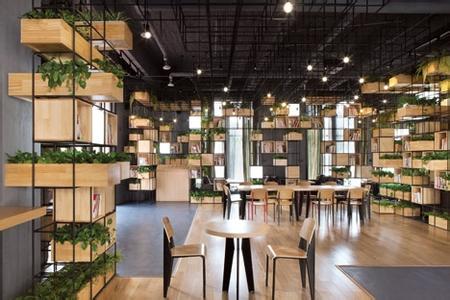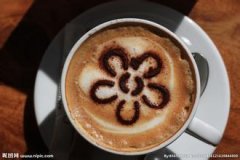History of the Origin and Development of the Caribbean region of St. Thomas Coffee at Valenford Manor, Jamaica

The company's Blue Mountain Coffee Plantation is located in the heart of the Blue Mountains at the junction of St. Andrew and Portland, while Alpine Coffee plantations are located in Clarendon, St. Catherine and St. James. The company's business runs through the whole process of coffee production, from planting, primary processing, storage and sale of raw beans to coffee roasting and sales of cooked beans, and has developed new related products in recent years. Since the establishment of the Jamaica Coffee Industry Committee, it has established a long-term and close cooperative relationship with Valenford Coffee Co., Ltd. Most of the current national standards for coffee cultivation and processing in Jamaica come from Valenford Coffee Co., Ltd. Because of this, coupled with the special status of the only state-owned enterprise in the Jamaican coffee industry, many people confuse Valenford Coffee Co., Ltd. with the Jamaican Coffee Industry Committee. So that both sides can only take the trouble to explain it often.
Historically, Canada and Britain have been the major consumers of Jamaican coffee. Since 1985, Japan has become a major importer of Jamaican Blue Mountain coffee. Annual imports account for 85% of Jamaica's annual output. But in recent years, the demand for boutique coffee in the Chinese market has become increasingly strong. Some shrewd merchants began to sell Blue Mountain Coffee to China from countries and regions such as Europe, North America, Japan and Hong Kong, but the problem of product quality assurance also emerged and intensified. In this regard, the Jamaican Coffee Industry Committee has increased its attention to the Chinese market and actively recommended high-quality Jamaican coffee to the Chinese market.
Coffee is the main cash crop in Jamaica, and coffee farms are all over the island. However, only in the four administrative regions of St. Andrew, Portland, St. Thomas and St. Mary, certified by the Jamaica Coffee Industry Council (Coffee Industry Board of Jamaica,CIB), coffee grown in the Blue Mountains above 2000 feet above sea level is allowed to be called Jamaican Blue Mountain Coffee.
The Jamaican Coffee Industry Committee was established in June 1950 to exercise the authority of the government to strictly regulate the cultivation and processing of coffee in order to ensure and further improve the quality of Jamaican coffee.
The Jamaican Coffee Industry Committee owns 100% Jamaican Blue Mountain Coffee? And 100% Jamaican alpine coffee? After strict certification, it is licensed to a small number of coffee growers and processors, including Wallenford Coffee Co., Ltd., established by Valenford Manor.
Today's Wallenford Coffee Co., Ltd. is an unlisted company wholly owned by the Jamaican government.
Important Notice :
前街咖啡 FrontStreet Coffee has moved to new addredd:
FrontStreet Coffee Address: 315,Donghua East Road,GuangZhou
Tel:020 38364473
- Prev

A brief introduction to the flavor, taste and aroma characteristics of Valenford Manor, an ancient coffee farm in Jamaica.
Coffee is the main cash crop in Jamaica. This beautiful small island country in the Caribbean has a mountain range, which is reflected by the blue water on a clear day, so it is called the Blue Mountain. The blue mountains are sunny and cloudy all the year round, and the unique environment makes the coffee grown here have a perfect balance of sweet, sour and bitter taste, so it has become the world.
- Next

A brief introduction to the treatment method of grinding degree and baking degree in St. Thomas producing area of Jamaica coffee producing area
In fact, today's Blue Mountain area is a small area with a planting area of only 6000 hectares, and not all coffee marked with the words Blue Mountain can be grown there. Another 12000 hectares of land is used to grow two other types of coffee (non-Blue Mountain Coffee): Alpine Top Coffee (High Mountain Supreme) and Jamaican Coffee (Prime Washed Jamaican). The real one
Related
- Does Rose Summer choose Blue, Green or Red? Detailed explanation of Rose Summer Coffee plots and Classification in Panamanian Jade Manor
- What is the difference between the origin, producing area, processing plant, cooperative and manor of coffee beans?
- How fine does the espresso powder fit? how to grind the espresso?
- Sca coffee roasting degree color card coffee roasting degree 8 roasting color values what do you mean?
- The practice of lattes: how to make lattes at home
- Introduction to Indonesian Fine Coffee beans-- Java Coffee producing area of Indonesian Arabica Coffee
- How much will the flavor of light and medium roasted rose summer be expressed? What baking level is rose summer suitable for?
- Introduction to the characteristics of washing, sun-drying or wet-planing coffee commonly used in Mantenin, Indonesia
- Price characteristics of Arabica Coffee Bean Starbucks introduction to Manning Coffee Bean Taste producing area Variety Manor
- What is the authentic Yega flavor? What are the flavor characteristics of the really excellent Yejasuffi coffee beans?

